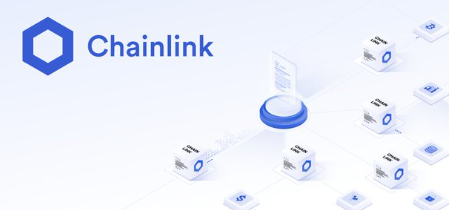Fiat currencies
Crypto Currencies
What Is an Oracle in Blockchain?
We may see the phrase "Oracle" among the crypto and blockchain projects. However, many people are still confused about the term "Oracle". This article will explain the concept of oracle in blockchain and briefly introduce the application of oracle in cryptocurrencies.
What Does Oracle Mean in Blockchain?
If you want to understand what Oracle is, you may need to know the problem of blockchain first. It is well-known that the core feature of blockchain is a distributed ledger and designed as deterministic. So blockchain cannot access the outside world data--off-chain data. In this case, we use the blockchain Oracle(device or entity) as a bridge to connect the blockchain with off-chain data. People also call Oracle the blockchain middleware, for it connects the blockchain to the external system. An oracle can also help a smart contract perform tasks automatically. There are many different types of oracles that exist and with different functions.

Why Do We Need Oracles in Blockchain?
As explained above, the Blockchain oracles are devices or entities that connect blockchains to the external world, allowing smart contracts to execute depending on the data of real-world inputs and outputs. Blockchain oracles are important in the blockchain ecosystem because they broaden the scope in which smart contracts can operate. If we don't have the oracles, the application of smart contract will be limited, even some common applications such as betting on the competition can't be achieved, since the blockchain can just access the on-chain data.
What Are the Applications of Blockchain Oracle?
There are many applications that use oracles, such as betting platforms, Defi, etc. For example, Alice and Bob place a bet on the winner of one of the competitions in the 2022 FIFA World Cup, Alice believes that Team A will win, however, Bob believes that Team B will win. So they lock their funds in a smart contract. Then there is the problem, how does the smart contract know whether to give the money to Alice or Bob when the game is over? Because the smart contract can't interact with external data, so we have to use the oracle to retrieve accurate outcomes from off-chain and securely send them to the blockchain. When the competition is over, the oracle queries an API to get the result of the competition and relays this information to the smart contract. The contract then sends the funds to Alice or Bob based on the result of the competition. If there is no oracle to relay the data, it is impossible to set the bet on blockchain.

What Cryptos Are Oracles?
There are many cryptos that are related to oracles, here we list the top 5 Blockchain Oracles:
- Chainlink (LINK) - Chainlink is a blockchain abstraction layer, it can help to connect smart contracts universally. Chainlink ensures blockchain securely interacts with external data feeds, events, and payment methods by a decentralized oracle network.
- WINkLink(WIN) - WINkLink fully integrates the real world with the blockchain space and will be able to provide reliable, unpredictable and verifiable random numbers, and fully restore trust and improve user experience by tapping into data, events, and payment systems, etc.
- UMA(UMA) - UMA is an optimistic oracle built for Web3. An optimistic oracle serves data to smart contracts using a "true unless disputed" escalation game.
- iExec RLC(RLC) - iExec makes creating oracles easy: All you need is a data source, a browser, and a few minutes. The purpose of iExec is to provide companies with scalable, secure, and easy access to the services, data sets, and computing resources they need.
- Band Protocol(BAND) - Band Protocol is a cross-chain data oracle platform that aggregates and connects real-world data and APIs to smart contracts, ensuring interoperability between smart contracts and the rest of the world.

What Are the Problems with Oracles in Crypto?
The biggest problem with oracle in crypto is the security risks. One of the purposes that people build blockchain is for decentrally. Ethereum, Solana, or other kinds of blockchain can run and control the smart contract automatically once the contract is programmed. If the conditions for the smart contract are met, then no entity needs to be trusted to execute the rules, and no middleman can prevent the transaction from taking place. The contract simply does what it's programmed to do. However, an oracle is a data feed run by an entity, and data is from a single API, node, or source. So sometimes trusting a data source can lead to issues. For example, the oracle data feed post inaccurate data in order to sway smart contracts in favor of the data feed owner. Or, if someone hacks the data feed to sway the data in their favor.
Closing thoughts
Oracle in blockchain help to connect smart contracts and the external world. But there are still some security problems that exist with oracle. Fortunately, a decentralized oracle has the solution to solve the problem and avoid a lot of risk in the blockchain.
Stay tuned to CoinCarp Social Media and Discuss with Us:
- Venga Introduces Euro IBAN Accounts to Streamline Fiat-to-Crypto Transfers in the EU Beginner Apr 15, 2025 2m
- 8 Best Crypto Sports Betting Sites in Canada [2025] Beginner Apr 14, 2025 9m
- 8 Best Crypto Sports Betting Sites in the UK [2025] Beginner Apr 14, 2025 8m
- Cryptocurrency Market Cap Trends: Analyzing the Growth from 2010 to 2025 Beginner Apr 11, 2025 4m